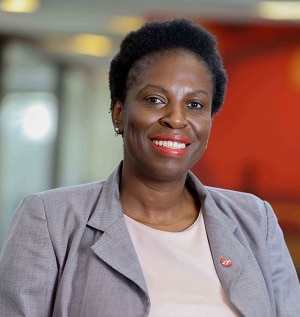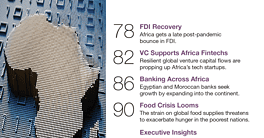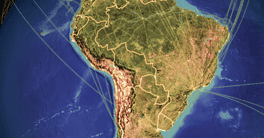Phillipine Mtikitiki, general manager of the East & Central Africa Franchise for Coca-Cola and president of the American Chamber of Commerce in Kenya, talks about Africa’s “infinite promise” and investment from the US and China.

Global Finance: The US has come up with a new Africa policy known as Prosper Africa. What does this portend for US companies with interests in Africa?
Phillipine Mtikitiki: African markets represent some of the greatest opportunities for private-sector growth in the developing world. For this reason, Prosper Africa harmonizes the initiatives and capabilities of US government agencies by modernizing and coordinating resources to support US companies in identifying and maximizing business opportunities in Africa. It is also important in strengthening the African private sector and improving the business climate. By strengthening the private sector in Africa, US businesses will be able to develop effective and sustainable partnerships on the ground to grow and expand in the long term.
GF: What are the future prospects for Africa, from the perspective of having operated there for decades?
Mtikitiki: There is plenty of ambition in Africa to industrialize, for good reason. Manufacturing is the proven development model so far that has helped to bring jobs, export revenues and rapid and sustained prosperity to a range of developing countries. Coca-Cola is among the companies that have long recognized the continent’s infinite promise. Africa is accelerating into a period of growth that is certain to be the most exciting time in its history.
GF: Why are US companies “cautiously optimistic” about Africa, and how long can that continue?
Mtikitiki: All investors, not just American companies, need the assurance that the time and money spent to set up a business in any country will have an opportunity to grow and thrive in the region. This is why we encourage and collaboratively work with government and industry stakeholders to create a more business-friendly environment that promotes clear and transparent laws and regulations pertaining to investments, protection of property rights and nondiscrimination when formulating policies.
GF: China has emerged as Africa’s most important trading and development partner. What can the US do differently to counter China’s success on the continent?
Mtikitiki: When China shifted focus to Africa, it devoted considerable state-directed and state-supported financing to projects in the region, focusing primarily on infrastructure development. However, the growing population presents numerous opportunities that other countries interested in investing in Africa can tap, to meet the emerging needs such as jobs and capacity building for the youthful population. From a government perspective, there is a need to pursue and implement modern, comprehensive trade agreements and programs on the continent that ensure fair and reciprocal exchange between the US and the nations of Africa. These agreements will create favorable business environments while also giving African countries the chance to benefit from export trade.
GF: Should Africa expect a significant rise in US foreign direct investment in the medium term?
Mtikitiki: In the medium term, we expect to see more private-sector commercial engagements on a bilateral basis, with a focus on creating mutually beneficial partnerships as a precursor to more FDI. A good example is last year, during the American Chamber of Commerce Economic Summit in Nairobi, where six commercial deals worth a combined $100 million were signed. Other companies have taken the Prosper Africa initiative as a green light, and gone ahead of the pack to initiate investment in the region. The eventual transformation of the continent into a single market should result in more investments in the future.
GF: How can US companies keep their strong footing in Africa in the face of stiff competition from multinationals?
Mtikitiki: Africa is the next economic frontier taking center stage on the global investment agenda. The US has a long history in Africa, and should continue to engage African leaders and entrepreneurs through a coordinated effort to improve trade and investment relations. This is being done by providing technical assistance for US and African companies, in order to double two-way trade and investment. It includes a special focus on transparent markets and private enterprise as the foundations of economic growth and job creation.



